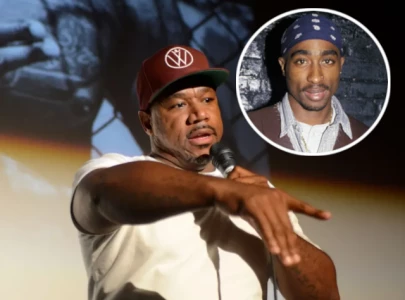
Simon Tolkien avoided writing fiction for most of his life, intimidated by the imposing legacy of his grandfather, JRR Tolkien who penned The Hobbit and The Lord of the Rings. Instead, he embarked on a 15-year career as a criminal lawyer in England. That experience, together with his study of modern history at Trinity College, Oxford, provided a fertile background when he began writing 12 years ago, at the age of 40.
In 2002, Tolkien published his debut novel, Final Witness, a murder mystery and courtroom drama. Last year, he followed up with his second book, The Inheritance about a son accused of murdering his Oxford historian father. The hero of The Inheritance, Inspector William Trave, returns in Tolkien’s latest book, The King of Diamonds, which will be published next week. Trave investigates the murder of the niece of a diamond merchant known for rescuing Jews from Nazi-occupied Belgium.
Tolkien talked about the inspiration for his new novel, his famous grandfather and how he feels about the upcoming film version of The Hobbit.
What was the motivation for this book?
The last book, The Inheritance, was a courtroom drama. I wanted to move away from that and more into a police procedural-type story. I also wanted to develop a female character. And I’m also interested in the shadow of the World War Two.
Has your grandfather influenced your writing at all?
With The Inheritance, there was this sense that you had to go back into the past in order to find out what is going on in the present. In the same way, I was really interested by what happens in The Lord of the Rings when Gandalf has to go back into this dusty library and read all these legends that were written thousands of years before in order to work out that this ring was the One Ring. And I think that’s similar to The Inheritance.
How do you feel about the movie version of The Hobbit starting to film?
I’ve got mixed feelings about that after The Fellowship of the Ring, The Lord of the Rings movies became more special effects than character-driven. What I wonder is whether they’re going to try and turn it into a sort of sub-Lord of the Rings, a big, adult epic, when The Hobbit was effectively written by my grandfather for his children.
Father-son relationships play a big role in your books. Have your disagreements with your father, Christopher, been an influence?
I don’t think it’s specific to me and my father, but I’m interested in how families work under extreme tension. I think there’s an alchemy between where you come from, and where you’ve been, and what your experience is, through to what you creatively write.
Why focus on Belgian Jews trying to use diamonds to escape from Nazi-occupied Belgium?
Diamonds have always fascinated me. I’m interested in the idea of something very small affecting the way in which people act. They tie in with the fate of the Jews in the Second World War as richer Jews tried to use them to buy their escape from the Nazis. I was also very interested in the novel Sarah’s Key, about the deportation of French Jews in 1942, and that led me to the story of the Holocaust in Belgium, where Antwerp was the centre of the diamond trade.
What do you get out of writing that you didn’t get from being a barrister?
I loved the bar. It’s theatre at a really major level. But equally, somebody’s fate for a very long time is entirely depending on you. I’m not under that kind of stress anymore. And through writing I can express who I am in a way in which I never could as a barrister.
Published in The Express Tribune, March 17th, 2011.

















COMMENTS (1)
Comments are moderated and generally will be posted if they are on-topic and not abusive.
For more information, please see our Comments FAQ